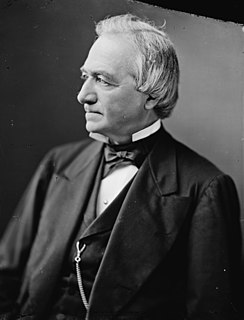A Quote by Bertrand Russell
The human race may well become extinct before the end of the century.
Related Quotes
Then from the world all spirituality will be extinct, all moral perfection will be extinct, all sweet-souled sympathy for religion will be extinct, all ideality will be extinct; and in its place will reign the duality of lust and luxury as the male and female deities, with money as its priest, fraud, force, and competition its ceremonies, and the human soul its sacrifice. Such a thing can never be.
Given that the nineteenth century was the century of Socialism, of Liberalism, and of Democracy, it does not necessarily follow that the twentieth century must also be a century of Socialism, Liberalism and Democracy: political doctrines pass, but humanity remains, and it may rather be expected that this will be a century of authority ... a century of Fascism. For if the nineteenth century was a century of individualism it may be expected that this will be the century of collectivism and hence the century of the State.
Amphibians are dying out like crazy, and frogs and salamanders may be largely extinct by the end of the twenty-first century. Imagine an animal that begins its life in the water, but ends it on land - already, that's pretty weird. But, also, a lot of them are incredibly tiny and look wildly improbable. They have funny little toes, they stretch their throats into weird bubble shapes when they croak, and some of them are poisonous to the touch. I think kids from the twenty-second century might mythologize amphibians the way kids today mythologize dinosaurs.
Humans will eventually become extinct. People treat that as a radical thing to say. But the fossil record shows us that everything eventually becomes extinct. It depends what "eventually" means. But the idea that were going to be around for the rest of global history...I don't think there's any scientist who would suggest that is true. It could be millions of years from now. We may leave descendants that are humanlike.
It is a mistake to assume that government must necessarily last forever. The institution marks a certain stage of civilization-is natural to a particular phase of human development. It is not essential, but incidental. As amongst the Bushmen we find a state antecedent to government, so may there be one in which it shall have become extinct.
There is a further advantage [to hydrogen bombs]: the supply of uranium in the planet is very limited, and it might be feared that it would be used up before the human race was exterminated, but now that the practically unlimited supply of hydrogen can be utilized, there is considerable reason to hope that homo sapiens may put an end to himself, to the great advantage of such less ferocious animals as may survive. But it is time to return to less cheerful topics.

































